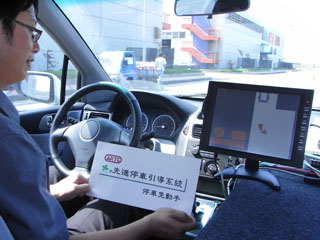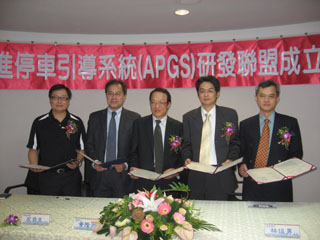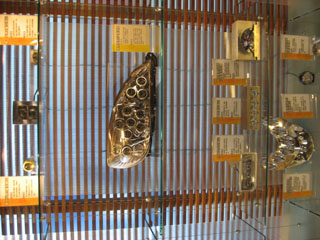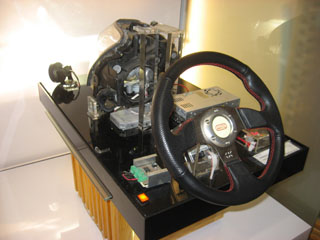New Taiwan Alliance to Develop Advanced Parking Guidance System
2008/11/14 | By Quincy LiangTaiwan's automotive-electronics industry took another step forward recently with the signing of an agreement between the Automotive Research & Testing Center (ARTC) and four private companies to set up a strategic alliance for the development of advanced parking guidance systems (APGS).
The alliance aims at the introduction in 2010 of commercialized APGS products, which are likely to be first used on a car model developed by the Hua-chuang Automobile Information Technical Center Co. (HAITEC). HAITEC is a member of the alliance and of the Yulon Group, which is developing a 100% home-grown auto brand, the Luxgen, the first model of which (reportedly a multipurpose van) is scheduled for debut in the second half of 2009.
The other members of the alliance, all major manufacturers of auto-electronics or electrical parts, are the Whetron Electronics Co., Bcom Electronics Inc., and Taigene Electric Machinery Co.
The APGS
ARTC explains that the APGS uses advanced ultrasonic and image-identification technology to detect surrounding obstacles and spaces and help drivers park their vehicles. A driver with APGS has only to push a button and take his hands off the steering wheel, and let the vehicle park itself. Parking in this way is easier, safer, and more efficient, because the system computer can figure out the best way to maneuver into a parking space and the electronic steering can put the vehicle there.
The first APGS system debuted in the Lexus LS in 2006. Liao Hsueh-lung, ARTC R&D division project manager, cites statistics compiled by Strategy Analytics in predicting that the annual demand for APGS will reach 15 million sets in 2010 and 24 million sets in 2015. This growth indicates that lucrative business opportunities exist in the APGS field.
Liao points out that only a few companies, including Aisin of Japan, Valeo of France, and Bosch of Germany, possess the technology needed for APGS, which is currently installed on only two car models, the VW Tiguan and the Lexus LS460.


The project manager notes that ARTC has been cooperating closely with the Carnegie Mellon University, winner of the DARPA Grand Challenge 2007-a prize competition for driverless cars sponsored by the U.S. Defense Advanced Research Projects Agency. This cooperation has helped ARTC win nine APGS patents in Taiwan, the United States, and mainland China.
Responsibility
ARTC president Joe Huang points out that each member of the new alliance has its own designated responsibility in the development of a home-grown, internationally competitive APGS.

Whetron is working on system sensing and control, Bcom on electronic steering, and Taigene on human-machine interface. HAITEC will be the system integrator and will provide a vehicle platform for system testing. The alliance expects to spend NT$250 million (US$7.58 million at NT$33:US$1) on R&D work by the time the product is commercialized in 2010. ARTC will help make the product a part of the supply chains of international automakers

"In fact," Huang said in a speech at the alliance signing ceremony, "ARTC has been constantly upgrading its role in local automotive-electronics R&D, because from our testing work we understand market trends and are able to use our market sensitivity to develop more advanced products, like APGS, with technology that is three to five years ahead of the market." ARTC is working on other advanced systems in addition to APGS, including an adaptive front-lighting system (AFS), LED headlamps for cars and motorcycles, lane-departure warning system (LDWS), lane-keeping system (LS), and parking assist system (PAS).

Huang claims that his center, which gets subsidies from the Ministry of Economic Affairs, "has the most comprehensive range of testing and inspection equipment, the highest-capacity laboratories in Asia, and over 300 staff, and is one of the strongest R&D supporters of the local automotive industry. Our R&D support helps local companies be more competitive in the global market and further lengthen their lead over rivals in low-cost nations."
HAITEC's executive vice president, Tso Chi-sen, confirms that his Luxgen models will adopt many systems developed by ARTC, including LDWS, front-collision warning system, LKS, blind-spot detection, PAS, APGS, driver surveillance system, and electric power-steering system.




